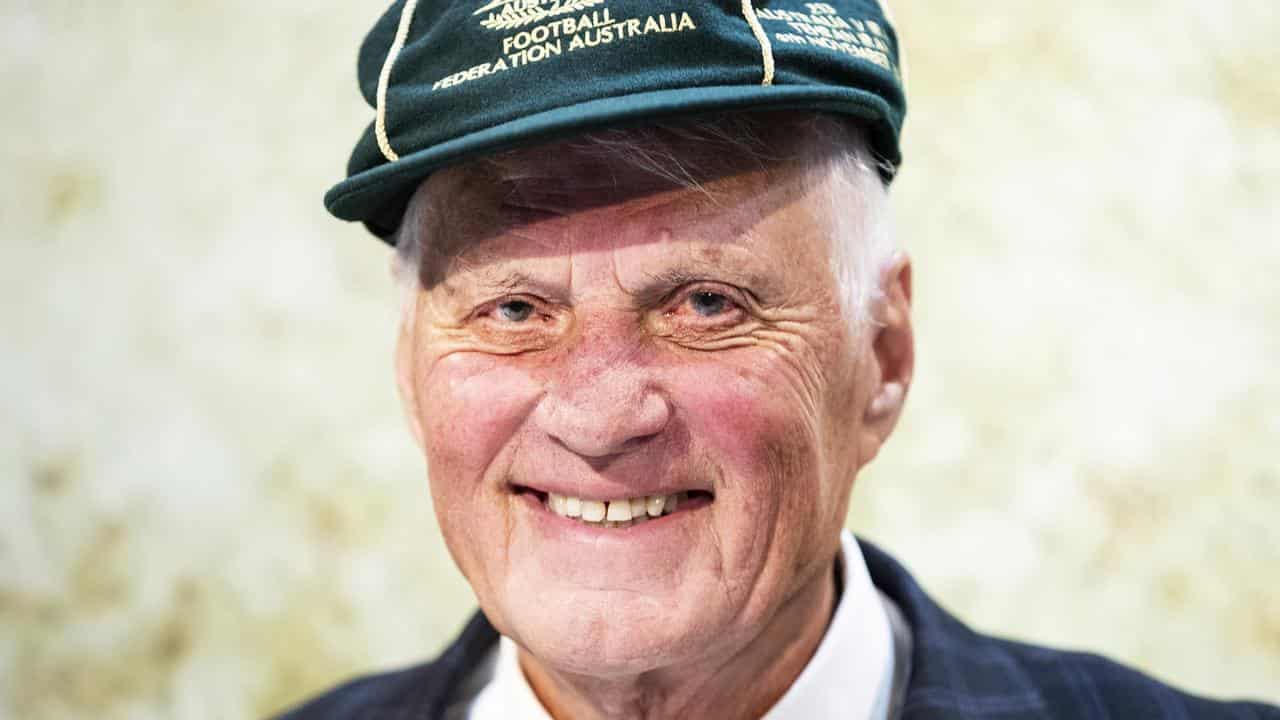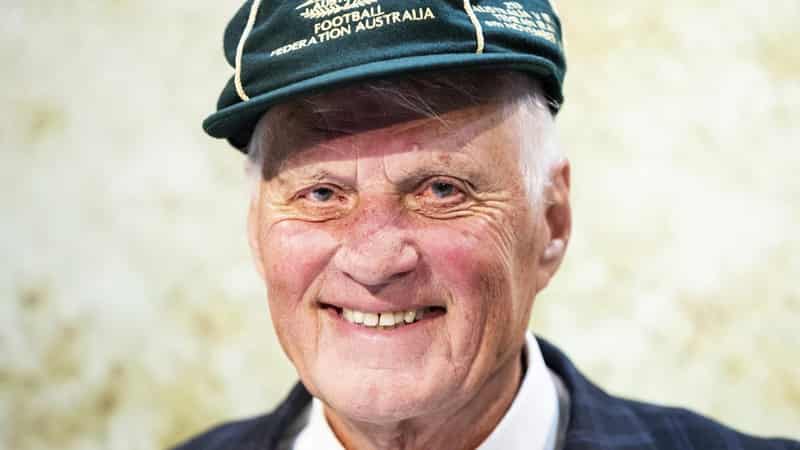
Australian football pioneer Rale Rasic, the first coach to take the Socceroos to a World Cup, has died, aged 87.
Always hailed as a revolutionary in the game in Australia, when he was appointed Socceroos boss in 1969 he demanded the system where state selectors picked the team be ended to give him total control of team selection.
Born in Mostar, Yugoslavia on December 26, 1935, Zvonimir "Rale" Rasic arrived in Victoria in 1962 as a journeyman player disillusioned with European soccer, to play for Footscray JUST.
As Joe Gorman wrote in his 2017 book 'The Life and Death of Australian Soccer': "His mind for tactics and organisation was far more advanced than his playing ability. His ascent from JUST to the Socceroos via Melbourne Hungaria and St. George-Budapest was meteoric. At each club he demanded the highest standards of professionalism from players, staff, and committee."
The 1973 campaign for the World Cup overcame some tough regional opponents in Iraq, Indonesia and New Zealand, before a magical 3-0 win against Iran in Sydney. Then, in front of a reputed 128,000 in Tehran, the Socceroos battled hard to only succumb 2-0 and move to the final phase.
Rasic often spoke of the fighting spirit of his 'boys' in those final matches, including a 0-0 draw with South Korea in Sydney, and then 2-2 in Seoul, before the play-off in Hong Kong was settled by the the rocket shot from Jimmy Mackay.
At the recent funeral of his 1974 defender Manfred Schaefer, Rasic regaled those at the wake with stories of the "mental toughness of the team, ability to focus on what was needed, what we wanted to do."
In 1971 he led his club team, St George-Budapest, on the first overseas tour by an Australian club team, winning a tournament in Japan. It was there his managerial prowess was observed first hand by journalist Andrew Dettre.
"His attention to detail, his ability to keep control of a myriad of issues, was breathtaking. Whether it was organising transport for the team to training, planning the daily routine, ensuring kit was ready, or plotting the tactics for the matches … Rasic was in total control," Dettre wrote in his memoirs.
He was a master of psychology in getting the most out of his players and teams.
Again from Gorman’s book: "In the final game of St. George-Budapest’s tour of Asia in 1971, Attila Abonyi and Adrian Alston insisted that Rasic start them in the forward line, bargaining that if they both failed to score in the first half, he could substitute them for the second. Rasic agreed. Abonyi and Alston fulfilled their end of the deal, both netting a goal in a stunning 3-0 first half performance. Never one to take instructions — especially from his own players — Rasic substituted them anyway."
Rasic coached a long list of teams in Australian football, from St George to Marconi, Adelaide City, Pan Hellenic among others, always winning trophies and spreading his football philosophy around the country.
He also had a hand in the foundations for the Australian Institute of Sport, taking part in the feasibility study group that created the AIS.
Always an absorbing after-dinner speaker, he was famous for turning his allotted 20-minutes into a 40-minute speech, but always kept the audience absorbed and entertained.
Rasic was inducted into the Sport Australia Hall of Fame in 1989, and in 2001, he was awarded the Australian Sports Medal and the Centenary Medal for "services to soccer" and in 2004 the Medal of the Order of Australia for "service to soccer as a player, coach and administrator."
In 1999 he was inducted to the Football Australia Hall of Fame.









